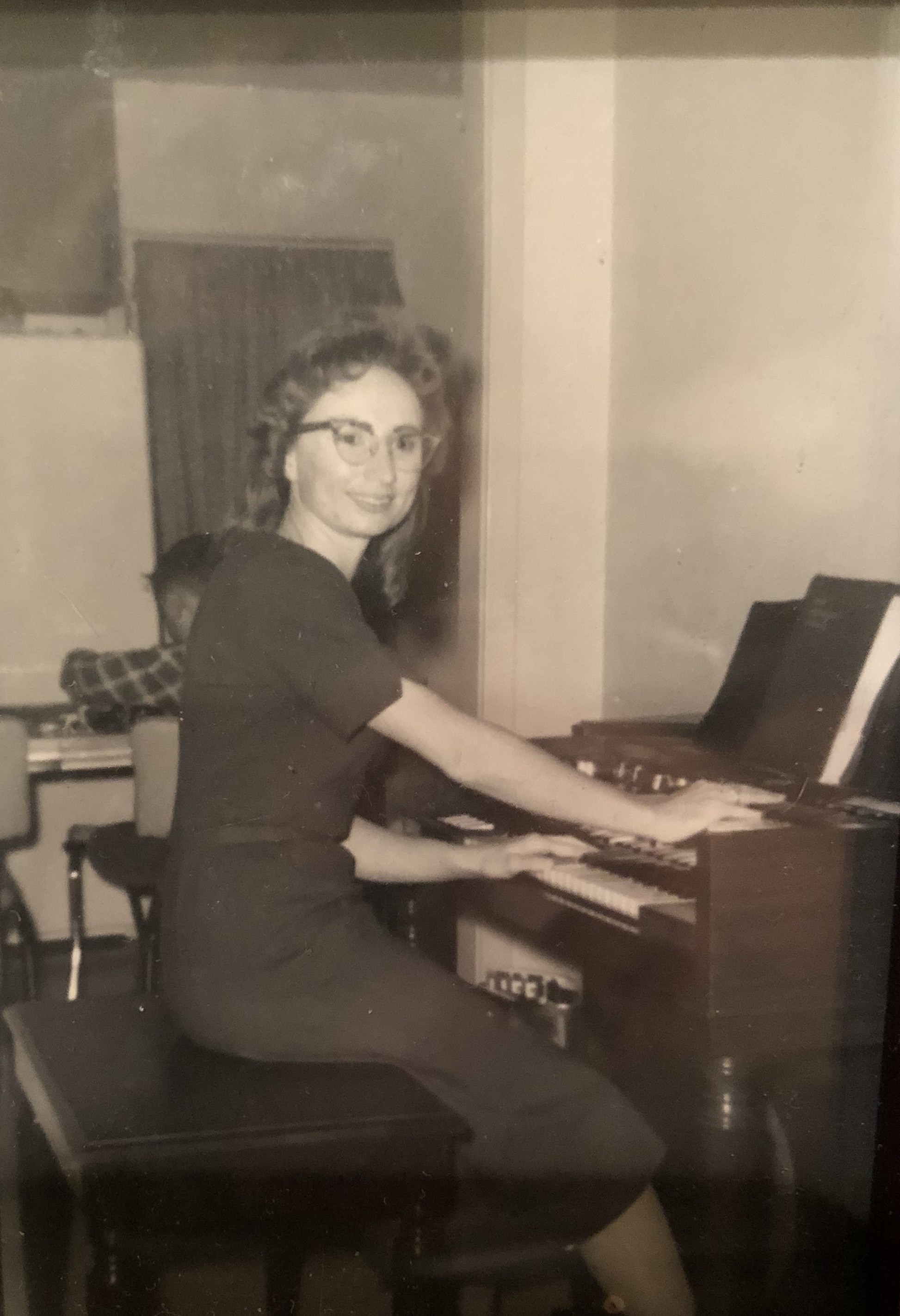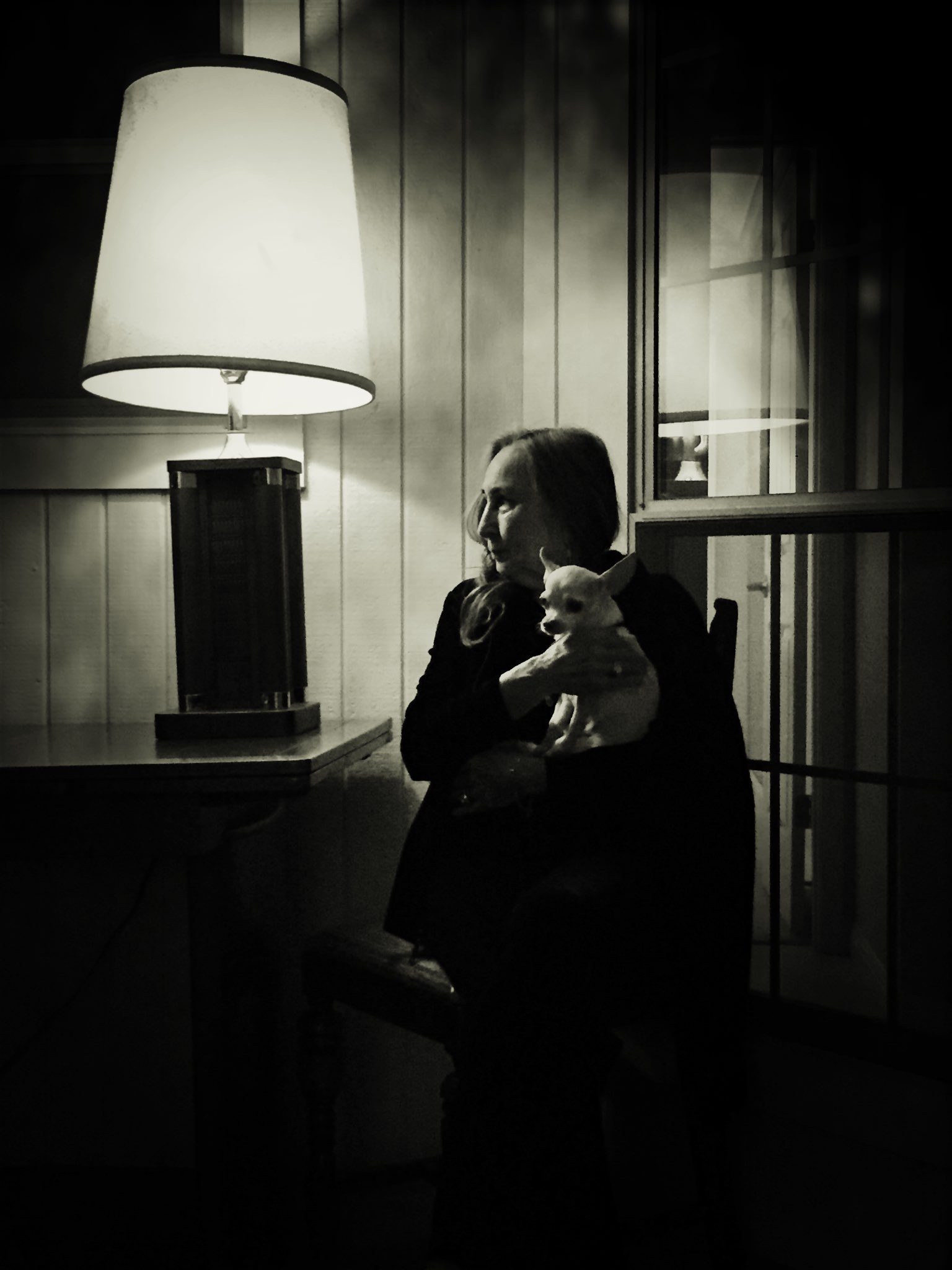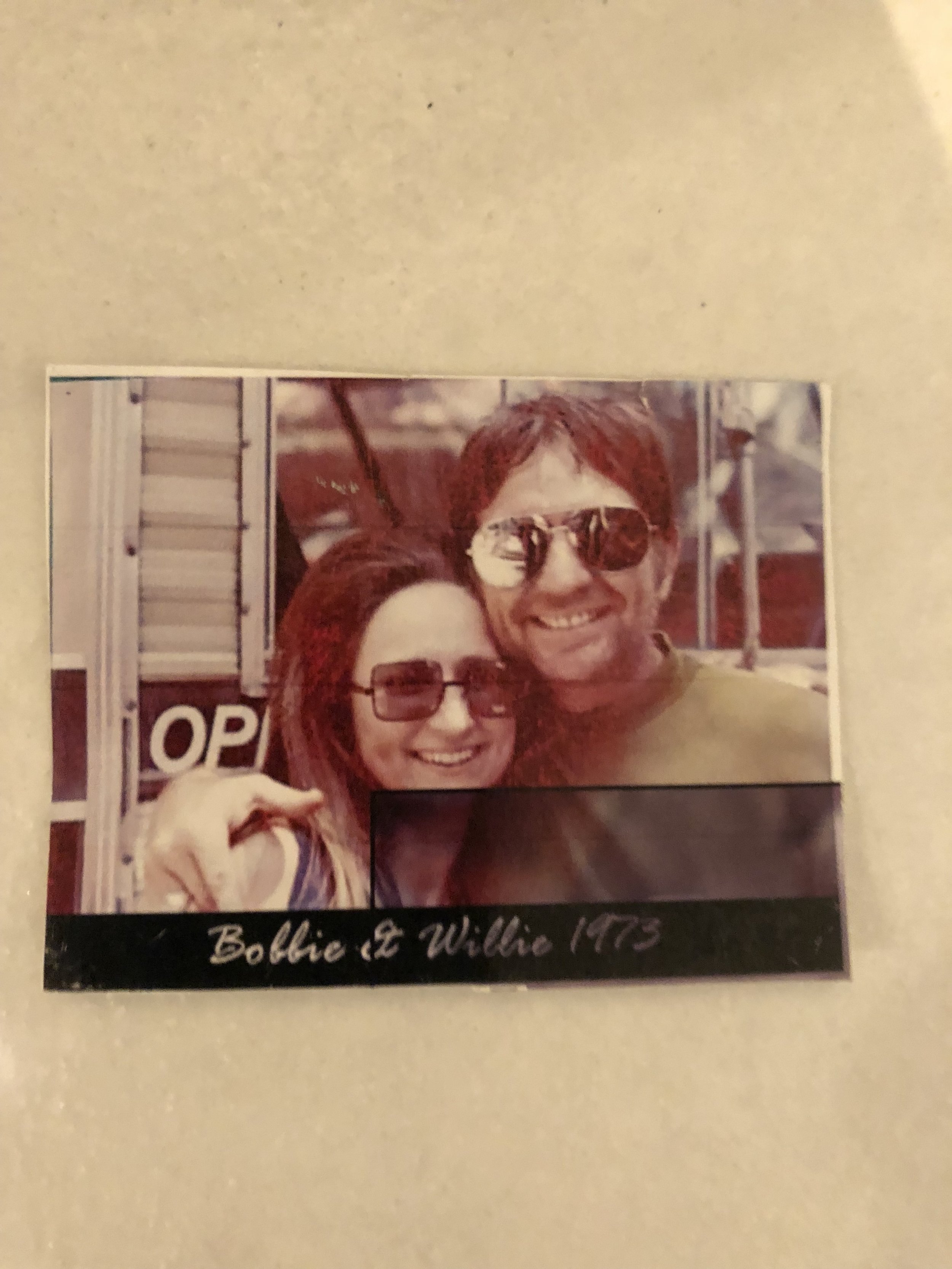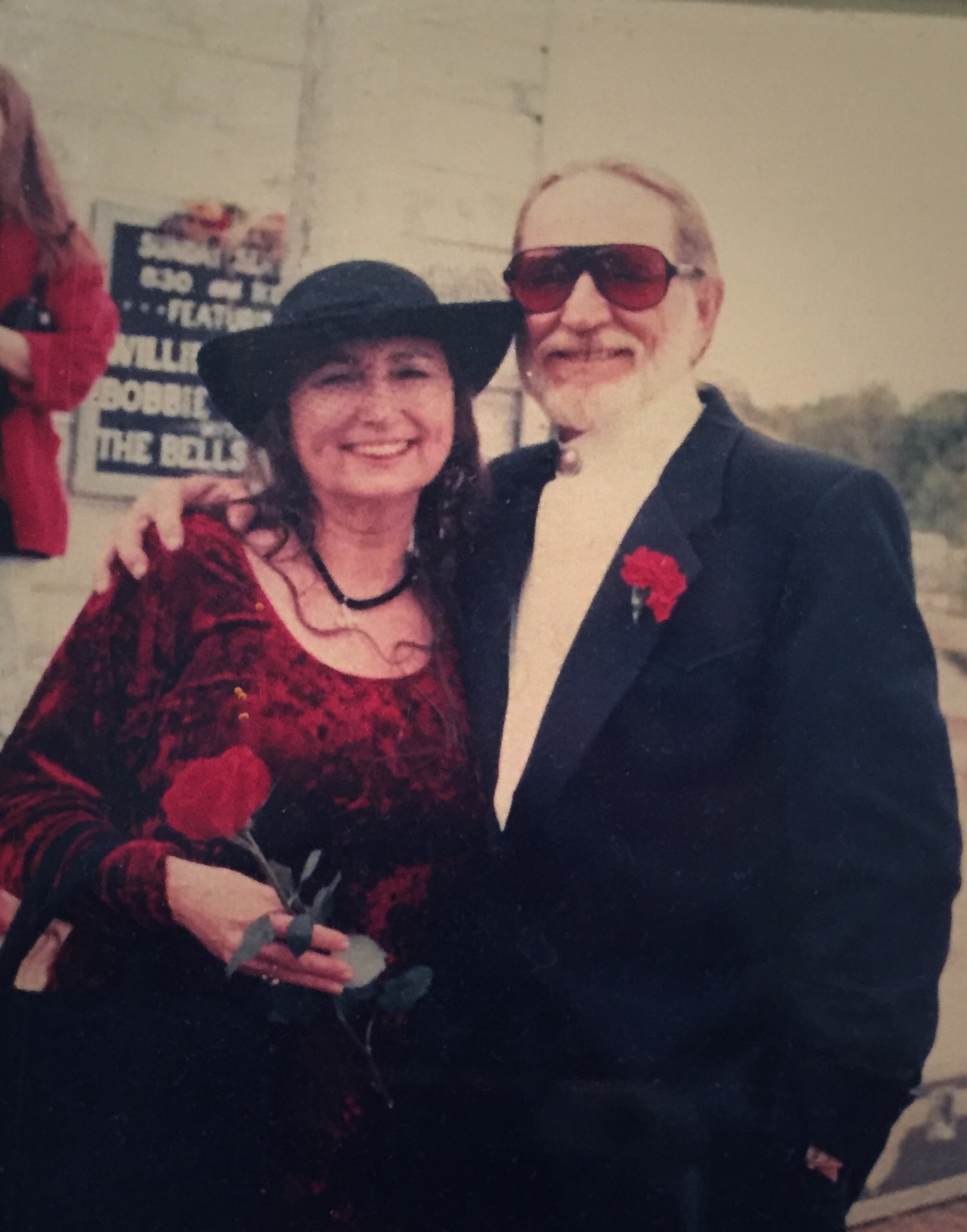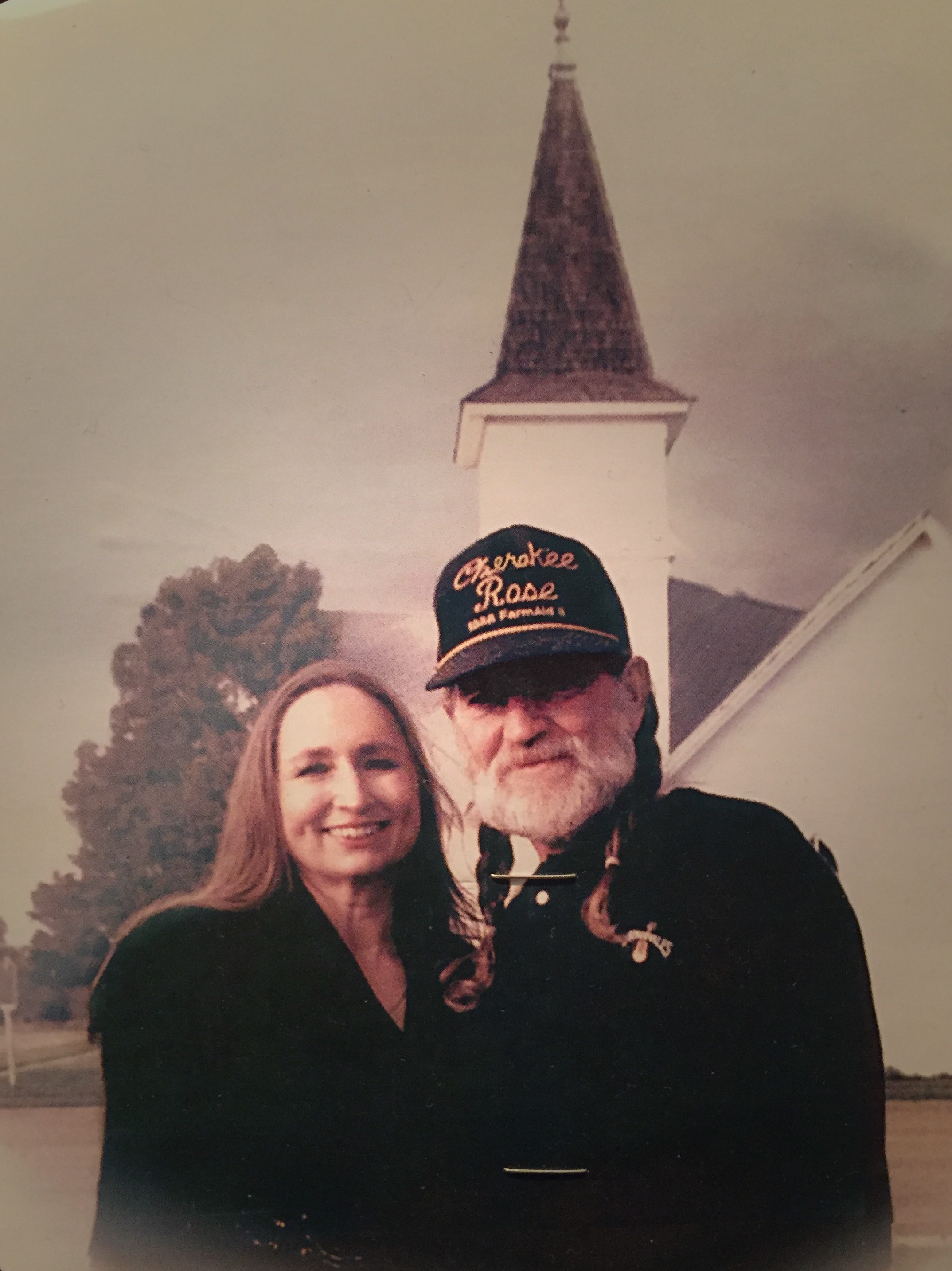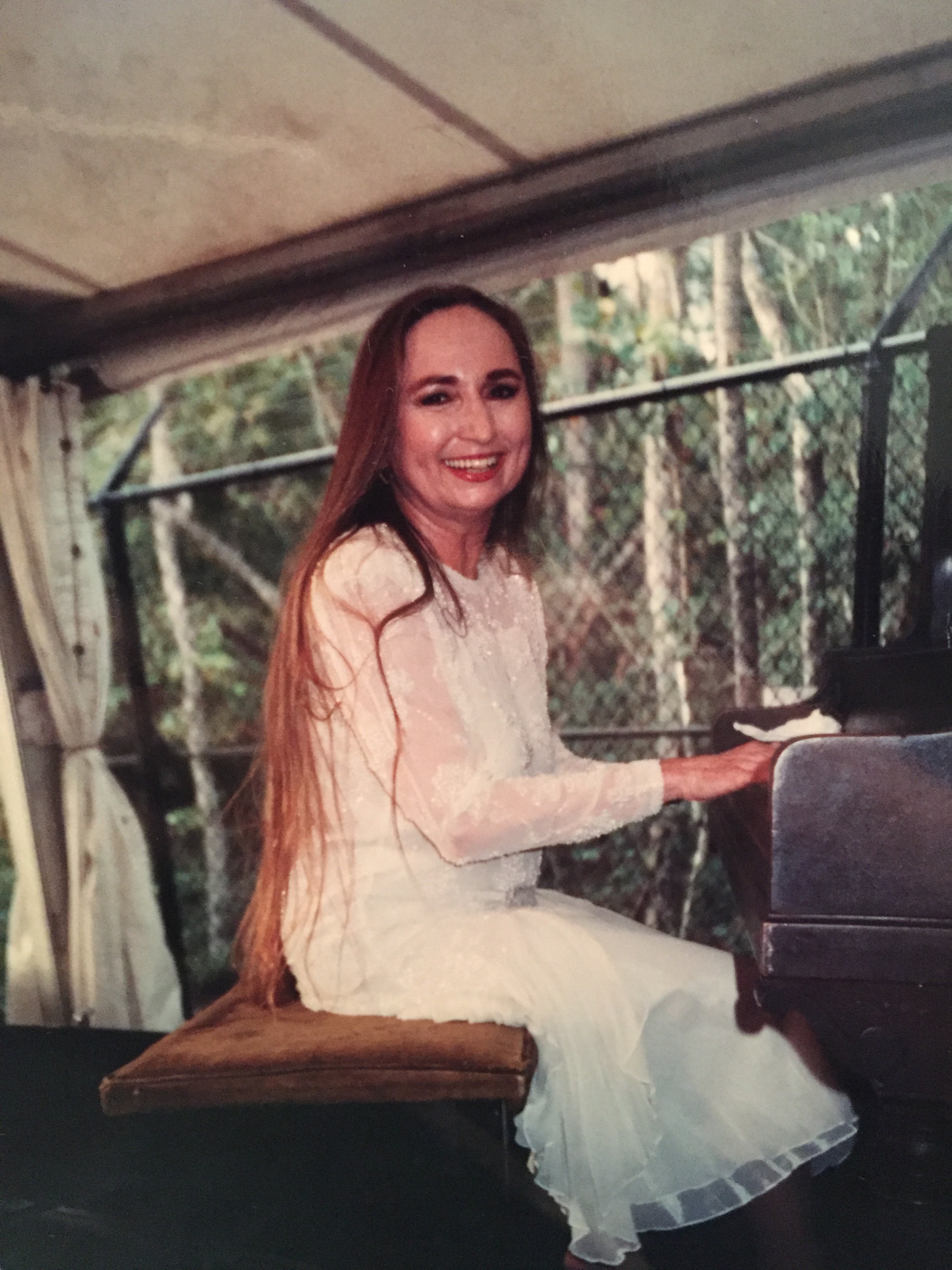Baby Grand: the Life of Bobbie Nelson
A familiar cadence resonating from a well-worn Trigger has long served as the official notice: Willie is in the building. The signature open begins with only Nelson alone, and crescendos with the addition - note by note - of each member of the Family Band. It's fitting that this arrangement of “Whiskey River” has kicked off Nelson's show for decades; the legend is but a piece of a whole – and he intends for it to stay that way.
The Family Band is truly that: a band of brothers (and sister) whose steadfast creative bond has produced one of the world's most beloved and influential acts. Behind the braids stands a crew of visionaries who together have created, and continue to foster, a culture of inclusion through music. Beyond the melodies, the “Family” members have been unwavering in their support of one another over their decades-long relationship.
At the very core of this collective is Nelson's “little” sister, Bobbie. On stage, the petite and powerful performer requires no introduction: behind the piano her delicate fingers, seemingly unburdened by a pair of gigantic Family Band rings, sweep the keys effortlessly in time with her brother's famously unique phrasing. But, without fail, her proud younger sibling introduces her each night. As she takes the last note of her spirited rendition of the L. Wolfe Gilbert classic “Down Yonder”, she rises humbly and tips her oversized black cowboy hat to the crowd.
Throughout their shared 50+ year career the pair has remained an undeniable creative force onstage and in the studio. And, from Bobbie's perspective, their bond through music from their earliest years has saved both their lives.
“We were just little dumb kids that got dropped off in the world. And here we are.”
The tiny town of Abbott, Texas is the foundation on which it all was built. Bobbie and Willie were raised by their grandparents, Nancy and Alfred Nelson, after their young parents hit the road to pursue their own creative dreams. “Mamma” and “Daddy” Nelson's house was filled with music. When Daddy Nelson would return home, the family's talk turned to music. Gathered around a small kitchen table, Nancy and Alfred shared with the children their latest learnings – they took a music course by correspondence – and their plans for next Sunday's music program at the local Methodist church. Bobbie was lulled to sleep each evening by the muffled sounds of her grandparents piecing together their own compositions late into the night. Bobbie and Willie started playing at an early age. When she was six, Bobbie began taking piano lessons from Mamma Nelson - and adored inviting her younger brother to join her on the bench as she practiced her chords. Willie received his first guitar two years later. The siblings soon started playing in the church on Sundays and beginning what Bobbie still calls “the best music education anyone could have”.
When the family purchased their first radio, she and Willie were mesmerized by the contemporary tunes and styles they were hearing for the first time. “That old box” allowed them to explore a world outside of their own through music; but in Abbott, Bobbie remained dedicated to the church music that she knew.
Then Bobbie met Arlyn “Bud” Fletcher. Some recall Bud as a con artist; a smooth-talking salesman just looking to make a buck. But Bud swept Bobbie off her feet. “He was just so charming. Oh, man, was he charming,” she recalls. He took her to the dance halls and honky-tonks she'd never imagined stepping foot in. Through Bud she was introduced to a crowd of rowdy artists and swindlers, many of which were “very fine people,” according to Bobbie. She married Bud when she was sixteen, graduating high school as Bobbie Fletcher. Not long after Bobbie got her diploma, Bud began putting a band together. Bud Fletcher And The Texans were a rag-tag group who just wanted to play real Western swing music. With Bobbie on piano; Willie on lead guitar and vocals; their father, Ira, on rhythm guitar; and Bud at the helm as a hard-selling promoter, the band made their rounds on the beer joint circuit. “I didn't care for those kinds of places,” Bobbie says, “I saw people riled up at the bar on a Saturday night, and the next morning they were sitting front row at church. For me...I really did this only for the music. I wanted to play, and I wanted to learn.”
Bud's family became increasingly wary of the Nelson siblings' influence on their son – a backwards take on the reality of the situation – and later worried for the future of their grandchildren. When Bobbie was forced to separate from Bud after a tumultuous run, the band fell apart. The Fletchers went to court to remove Bobbie from her three sons, deeming her an unfit mother. “They didn't want me playing in those joints. But I never took a sip to drink, I never broke the law,” she says. “I was broken, my spirit was crushed. I had to get my boys back.” Bobbie fought hard to regain custody of her children and, after Bud's fatal car crash in 1961, set out to create a new life to provide for her boys. Her stint in a TV repair shop in Fort Worth fatefully brought her back to music when the owner found her a job with Hammond Organ Company.
In the meantime Willie's career was picking up steam. “He was in Nashville and all those places, getting his songs on the radio. All the sudden, everyone knew who he was.” Her brother would often visit her home to take a break from his newfound fame. Their bond over music remained a pillar of strength for the siblings, and perhaps inspired the next generation of industry players: Bobbie's youngest son Freddy - then six years old - caught on to his uncle's notoriety and would charge the neighborhood kids 5 cents to watch the singer sleep. “He got that from his father,” Bobbie laughs.
Bobbie gained recognition herself in the Austin music scene, playing the town's most buzzed about hotels and supper clubs. It wasn't until 1973 that Bobbie and Willie reunited over music. Having signed with Atlantic Records, Willie called his sister from New York where he was recording a gospel album, and insisted that she join him. She boarded an airplane for the first time in her life, joined her brother in New York to record The Troublemaker, and never looked back.
Bobbie and Willie have been playing music ever since, with no plans of slowing down any time soon. “If we ever had to stop I don't know how we'd take it,” she says. “Our hearts...and everything are in music. We've never gotten through anything in our lives without it.” Indeed, the pair has suffered great loss over their decades-long career. “When I lost two of my sons, I had Willie, Freddy, and music to turn to. Willie has suffered the same. And we turned to each other. We kept on playing. And we will keep on playing”.
Bobbie's house, a short drive from “Luck, TX” property that Willie calls home, is an ode to the life they have shared and the music they have made. Framed platinum and gold albums line the walls; shelves and tables are littered with photographs of a whirlwind history filled with love and loss. There are perhaps more pianos than furniture – an instrument in nearly every room. A stack of cast iron skillets maintains a permanent position next to the stove, always prepared for Willie to drop in for his sister's cornbread and sausage. As the dainty beauty takes a breath after regaling the tales of a life well-lived, she says softly, as if no one is listening “I've given up a lot of little things because I had a bigger thing to do. This is it for me.”
